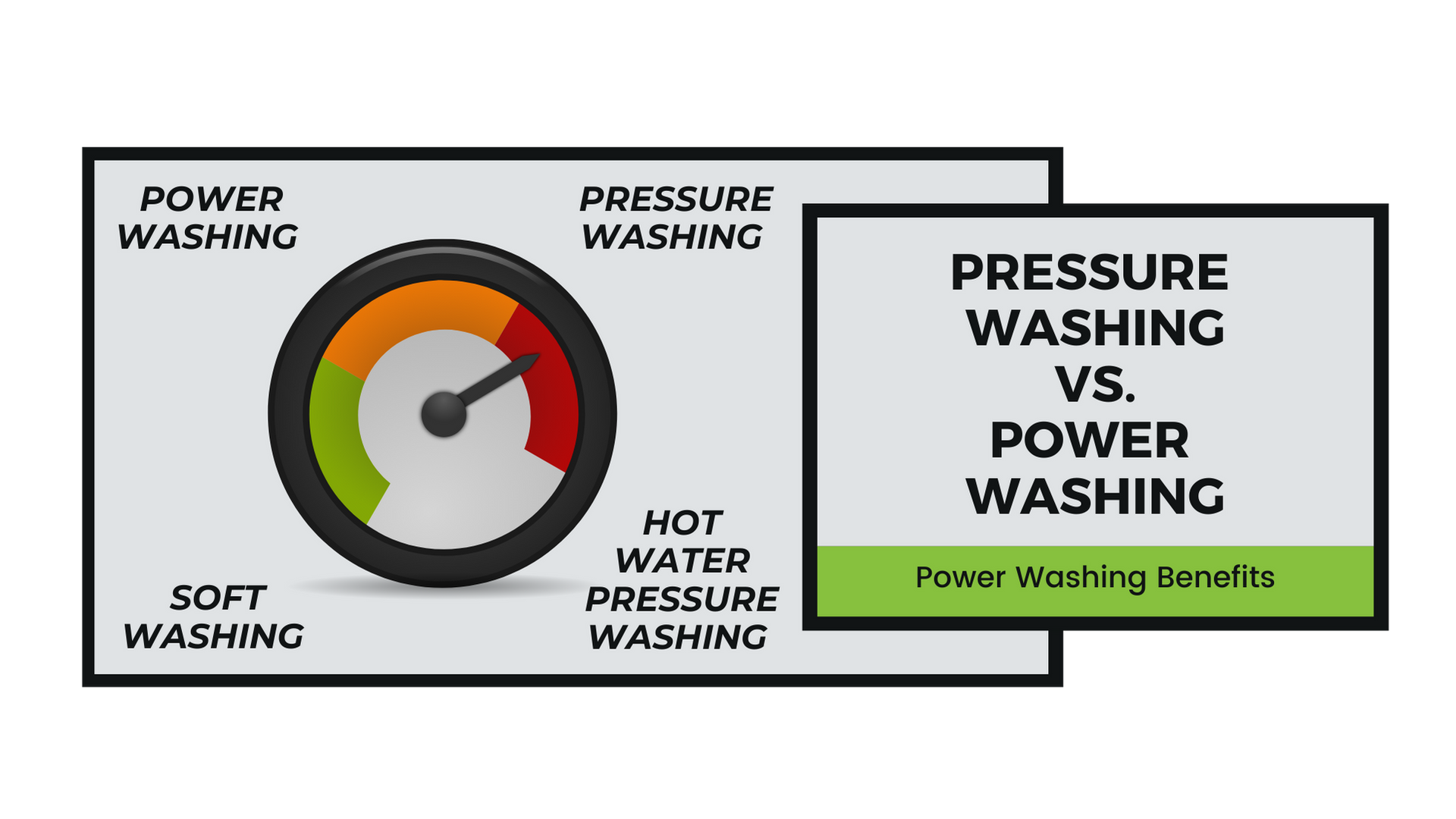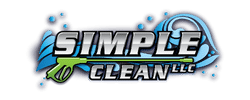What is Power Washing?
Learn how our professional techniques at Simple Clean LLC can enhance your home’s curb appeal effortlessly.
Power Washing vs Pressure Washing: What's the Difference?
They are All different Methods of Application
If you've ever wondered about the disparities between
power washing and pressure washing, you're not alone. Many people are unsure which cleaning method is best for their needs. Both of these services fall in the category of Exterior Cleaning. Both methods excel at removing dirt, grime, and debris from various surfaces. Interestingly, regional preferences also influence the terminology used. In the South, "pressure washing"
is the commonly used term, while up North,
"Pressure" may be perceived as intimidating to clients. Moreover, the concepts of
Soft Washing and House Washing remains relatively unknown to many individuals.
With the various terms used interchangeably, one important aspect stands out: the end result of the service and the chosen method of application for each surface. Our focus lies in methods that effectively eliminate biofilm, guaranteeing a long-lasting, professional clean. We employ a meticulous Multi-Stage cleaning process that utilizes purpose-made Cleaning Solutions and Detergents for exterior cleaning. Moreover, we can proactively take measures to ensure proper neutralization of solutions to prevent any potential damage to property and plants. Our thorough and comprehensive service goes beyond the ordinary "Splash and Dash," delivering exceptional results.
Pressure/Power Wash Method:
"Pressure/Power washing is a cleaning method used generally on the outside of buildings and has been the staple to the exterior cleaning industry for nearly 100 years. Cleaning contractors are beginning to market power washing. It is similar to pressure washing in that it still utilizes an electric motor or gas engine to power a pump with a specific nozzle size that pressurizes and accelerates water to remove a stain. However, power washing is slightly different in that it uses soaps and chemistry to emulsify the stains and organic matter then uses pressure to rinse the stain away. Power washing is chemical assisted pressure washing. It uses the “power” in the chemistry of the soaps to make the “pressure washing” more effective."
CETA -Cleaning Equiptment Trade Association
The Cleaning Equipment Trade Association is an international non-profit trade organization that represents the pressure cleaning industry whose members include manufacturers, suppliers, distributors, and contractors. Find out more about our association here.
Pressure/Power Washing White Paper on Cleaning and Sanitizing of Surfaces
Published - 6/25/20
Why Power Washing?
To address these differences and cater to a wider audience, we have chosen
power washing as the primary base for our comprehensive range of exterior cleaning services. By combining the best elements of all methods of application, we strive to provide exceptional results that exceed our clients' expectations.
The industry has evolved to understand that a one-size-fits-all approach doesn't work for every home. While traditional pressure washing involves using high-pressure water, we emphasize the importance of utilizing the appropriate
POWER from
cleaning agents and
gentler pressures. This approach allows for effective cleaning without risking damage to your home's surfaces. The Cleaning Equipment Trade Association, along with a strong table of industry professionals have published a document detailing the the modern definition of Power Washing for what is is today.

Frequently Asked Questions about Power Washing
Hot Water Pressure Washing:
As for "Hot Water Pressure Washing", this method still holds a specific niche, mainly in the commercial, industrial and sectors. It's primarily used for tasks like fleet washing and removing stubborn substances like gum and grease from concrete. The high temperature of the water is effective in breaking down these tough materials. However, it's important to note that hot water pressure washing is not recommended for residential house washing due to its potential to harm the exterior surfaces.

